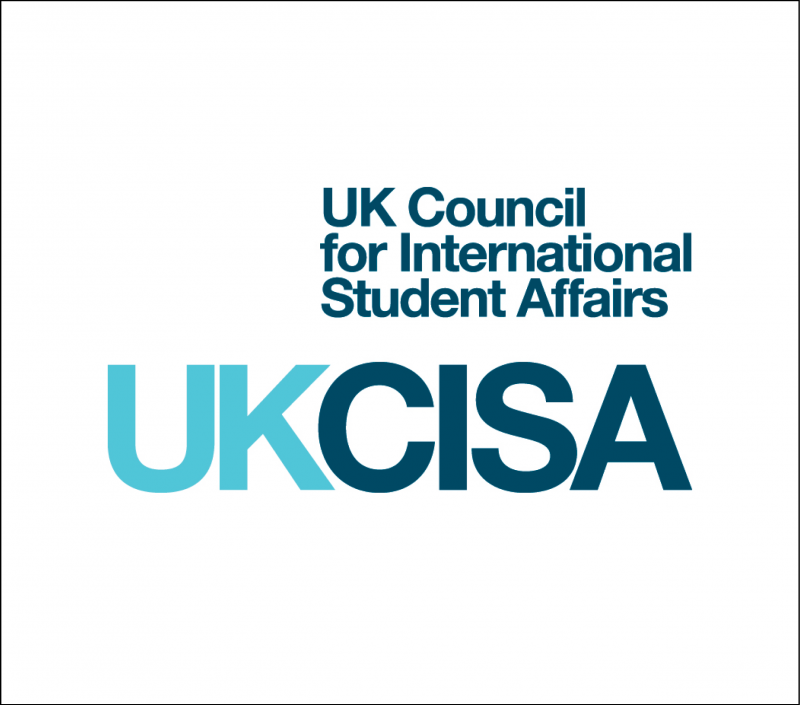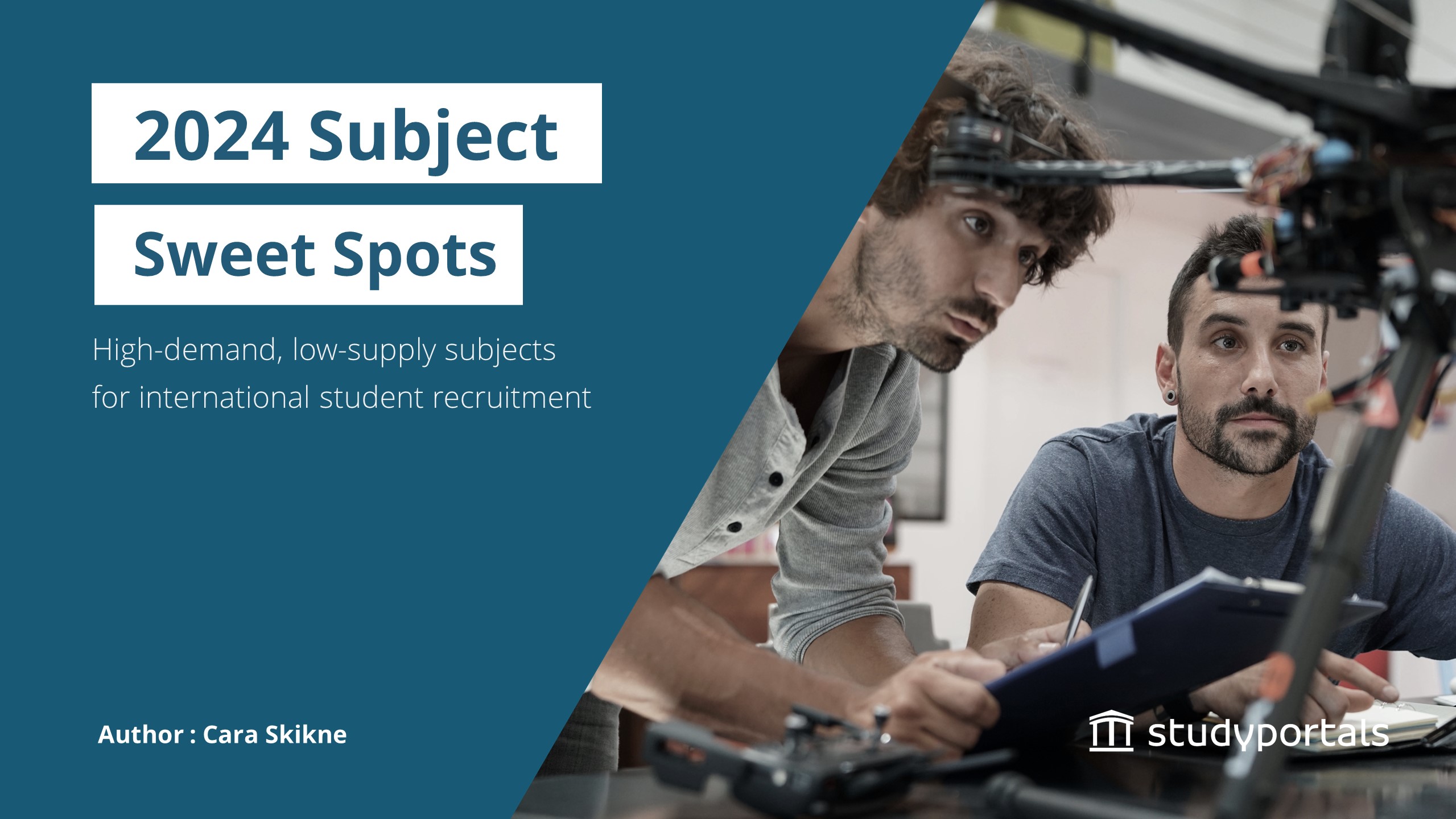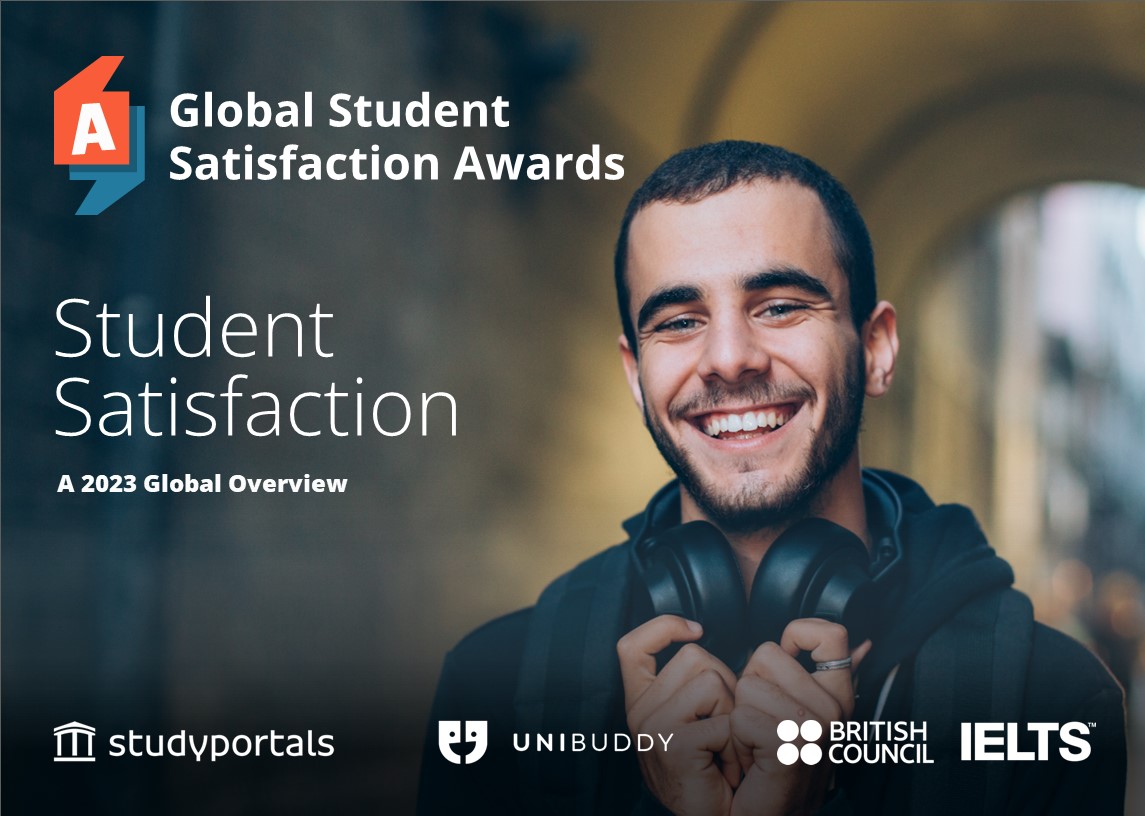One in five of the world’s top universities ignore enquiries from international students
A new study conducted by StudyPortals and supported by the British Council reveals brand new information on the world’s 500 top-ranked institutions. Conducted in unusual methodology – mystery shopping – the research presents us the 500 institutions websites and recruitment processes from a new perspective, assessed by potential international students. Their insights will be launched at the EAIE conference in Prague in a report Through Student Eyes.
The competition for talent is global. Many higher education institutions and countries are aiming for international growth to increase the quality of their education, to attract skilled labour and also because international students bring a significant economic benefit. For example, in 2012-2013, international students contributed $ 24 billion to the US economy , and created 313,000 jobs. Studies show that universities’ websites are a key source of information for students trying to make a potentially life-changing decision. Yet the ‘Through Student Eyes’ report found that often the information is scattered and of poor quality as the jargon that universities use is often complex and unfamiliar, especially to international students.
In the research, a group of five international students assessed the recruitment process of the top 500 universities and evaluated them based on the findability of their websites, ease of locating key information, and their responsiveness to enquiries. Each of the sections was evaluated forming an overall score of the world’s top 500 institutions: the ‘Student Eyes Rating’.
Research shows that UK and Irish universities, together with those in the Benelux and Scandinavia, perform best when it comes to informing prospective international students.
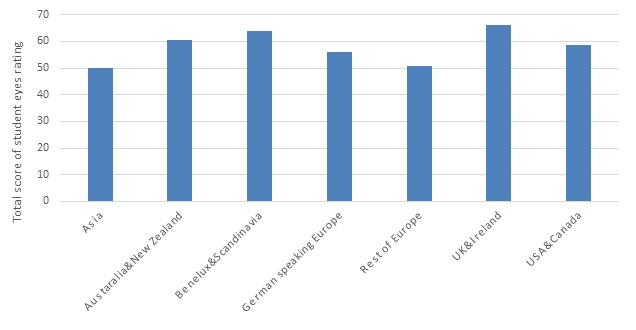
Looking at responsiveness to student enquiries 57 % of the institutions reply within 24 hours. 15 % within 4 days and 8% in more than 5 days. But 21% of the top 500 institutions do not reply to student enquiries at all. The “no reply rate” is the highest in Asia but also 25% of Australian institutions do not reply to prospective students’ enquiries.
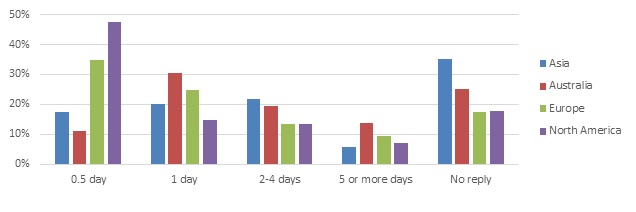
Among all top 500 institutions only 12% send a reminder to interested prospective students. 68% of institutions that reply to a student enquiry do not contact the prospective student again.
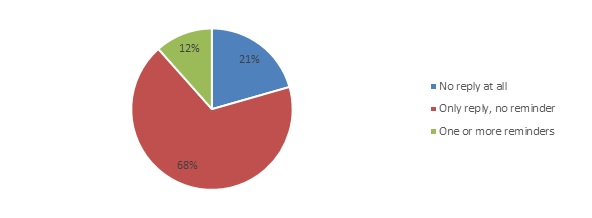
In general, the key information, such as information on degree level and type, application deadlines and duration of the programme, was considered easy to find across all the top 500 universities’ websites, although some information, such as accreditation was evaluated as very difficult to find for 30% of the institutions.
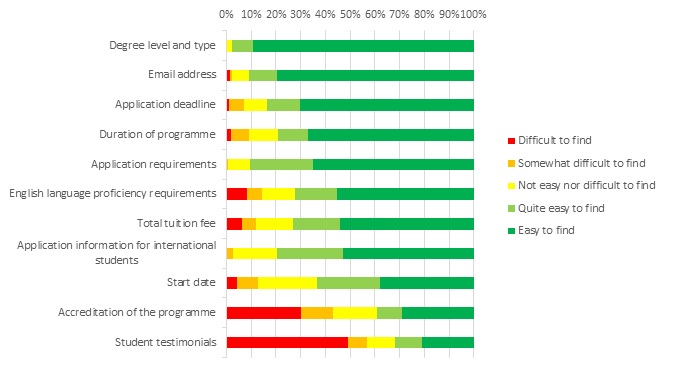
About the research
The scope of this research was global, including analysis of institutions from 38 countries worldwide. The institutions included were chosen based on the Webometrics Ranking of World Universities, due to its inclusion of all universities globally. To ensure concise and complete coverage, all universities within the top 100 of the most recent U.S. News rankings, the Times Higher Education World University Rankings and the Academic Ranking of the World Universities (the Shanghai Ranking) were included in the research. As a result, in total 524 institutions and 1,048 programmes were included. The parameters of the study restricted analysis to programmes that were conducted in English; therefore a number were discounted, as they did not meet the research criteria. The final total of institutions analysed within this study was 476, with a total of 952 programmes.
The research presents a detailed analysis of the 500 of the world’s top-ranked universities and their information provision towards international students. It was conducted as a mystery shopping exercise with a team of researchers who explored 500 institutions in the orientation and application process. They assessed the official homepages of institutions and pages of selected programmes and evaluated the difficulty in finding predefined set of information. They also contacted the institutions asking a specific set of questions and assessed the replies received. All together more than 40 individual data points of each university’s performance were analysed and rated. This enabled an objective measure and comparison of the universities’ performance in terms of findability, information provision as well as enquiry response and follow-up.
About British Council
The British Council is the UK’s international organisation for educational opportunities and cultural relations. We create international opportunities for the people of the UK and other countries and build trust between them worldwide.
We work in more than 100 countries and our 7,000 staff – including 2,000 teachers – work with thousands of professionals and policy makers and millions of young people every year by teaching English, sharing the Arts and delivering education and society programmes.
We are a UK charity governed by Royal Charter. A core publically funded grant provides less than 25 per cent of our turnover which last year was £781m. The rest of our revenues are earned from services which customers around the world pay for, through education and development contracts and from partnerships with public and private organisations. All our work is in pursuit of our charitable purpose and supports prosperity and security for the UK and globally.
For more information, please visit: www.britishcouncil.org. You can also keep in touch with the British Council through http://twitter.com/britishcouncil and http://blog.britishcouncil.org
About StudyPortals
StudyPortals’ main objective is to make study choice transparent globally. In a market of growing options and an increasing need for (digital) information and international comparison, the platform has rapidly established a central position for students that have an interest in studying abroad. Currently, over 1,450 universities participate, from 52 countries, creating transparency across 35,000 study programmes.
Our quality approach has allowed us to build up unique experience on how to find university programmes and present them effectively to prospective students. This empowers students worldwide to easily find and compare their ideal education, while universities benefit from well informed, well matching prospective students.
Press contact: Carmen Neghina | Tel: +31 655 875 270 | Email: carmen@studyportals.com
For more updates, follow us!

